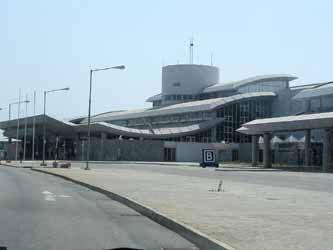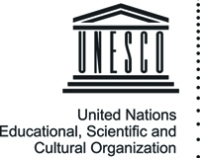 By VICTOR NZE
By VICTOR NZE
Issues relating to advocacy for a separate ministry for tourism, the disquiet in the Nigerian Tourism Development Corporation (NTDC) as well as the conspiracy theories weaved around the shocking destruction of the iconic Abuja Art and Crafts Village tended to becloud the seeming gains recorded by the Nigerian tourism industry in 2017.
The year witnessed a spike in the country’s room capacity, with international brands raising their portfolios in the industry, as well as the emergence of a new competition for the Calabar Carnival in the form of Lagos State which raised the bar in the carnival entertainment, that was seeing a decline with the disappearance of top destinations like Akwa Ibom and Rivers states from the procession.
With an increase recorded in the country’s room capacity courtesy of the emergence of the United States-based hospitality giants, Marriott International, via its acquisition of an existing player, Starwood Hotels, in September 2016, increased its portfolios in the country by well over 1000 room keys, therefore giving it the single biggest stake in the industry.
The official signing of an agreement with the Landmark Africa Group for a 216-room hotel plus the 44-room executive apartments, in Victoria Island, Lagos, saw Marriott International add a total of 983 room keys to the Lagos hotel capacity alone by 2020.
Marriott Group also owns the Renaissance branded hotel in the Ikeja area of Lagos with 155 guestrooms including 17 contemporary suites which was the first of the hotel chain’s brands in the country, last December.
This in addition to the new 90-room Protea Hotel earlier opened in Owerri, the Imo State capital.
2017 was also the year that the Lagos State Government midwifed an open tourism and entertainment product that may well rival the Calabar Carnival after the seeming demise of the iconic Abuja Carnival which for inexplicable reasons by the Federal Government through its Ministry of Culture and Information failed to hold for the first time in about a decade.
Tagged the One Lagos Fiesta (OLF), the Lagos flagship yuletide revue held from December 24 till January 1, 2018, and followed the earlier Street carnival that took place also in December.
Over 100 artistes drawn from the contemporary to the old genre of the Nigerian music industry featured at the 2017 edition spanning eight days of non-stop Fiesta, in five different designated centres in Lagos simultaneously and drew an unprecedented crowd of music lovers and carnival enthusiasts, in a year the rival Calabar Carnival in Cross River State had trimmed its own repertoire from the original 31 days of musical stage performances to just two days of carnival and vehicular parades.
The Lagos event held across Ikeja (Agege Stadium), Badagry (Badagry Grammar School), Ikorodu (Ikorodu Town Hall), Lagos Island (Bar Beach) and Epe (Epe-Marina Beachfront), while the cross over night of December 31st into the New Year held at the Eko Atlantic City.
The OLF was specially designed to turn the five divisions of Lagos into a tourist destination for 8 days non-stop showcasing not less than 40 concerts all together across the city of Lagos while developing the local economy of these areas thereby making it self-sustaining during the festive period and after.
However, the year also saw a growing concern among stakeholders for a separate Ministry to be created by the Federal Government for the tourism industry, which had been under the Culture and Information ministry headed by Alhaji Lai Mohammed.
Stakeholder bodies such as the National Association of Nigerian Travel Agencies (NANTA) and the Nigeria Association of Tour Operators (NATOP) stepped up their calls for better attention for the industry which opined a separate ministry would guarantee if created.
While commemorating the past 2017 International Tourism Day, NANTA President, Bernard Bankole said that a separate ministry would fast-track the development of the sector.
“Federal Government should create a stand-alone ministry for tourism so that all attentions and efforts will be concentrated on how to build tourism to generate revenue for the government and employment for Nigerians.
“Putting tourism alongside with others like information and National Orientation is going to frustrate the growth of tourism. “Everywhere in the world, tourism is a big portfolio that even people struggle to get appointment as Minister of Tourism because they know the value of the sector,” he said.
On his part, Mr. Nkereuwem Onung, President of NATOP called for the restoration of the Ministry of Tourism, to enable the tourism sector contribute effectively to the economic development of the country.
Onung said that the amalgam of the Ministry of Tourism with Information led to tourism becoming a department in the ministry noting that `this has not augur well with the growth of the sector’.
“So we are calling on the Federal Government to give us a separate ministry so that we can articulate issues of tourism very well. Nigeria now needs to get back to tourism in view of the global fall in crude oil price.
He explained that if the ministry of tourism is restored, it would assist in boosting the revenue of the country also fast track tourism development in Nigeria, adding further that this would also attract more foreign exchange to the country as well as create employment opportunities for the nation’s teeming unemployed youths.
“Tourism runs through channels with statistics, it is not based on putting the right structures in place for tourism. We have the statistics; it is not about people coming to your country, it is about doing things that will appeal to people to come into your country,’’ he said.
With the rise in earning by the government and increased spending on capital projects and other infrastructure, Nigeria is projected to recapture its position as a preferred destination from 2018 with arrivals set to see an increase, according to projections by major tourism and hospitality bodies.
Another downside to the outgone year was the fire incident that razed the iconic Abuja Art and Crafts Village last December, resulting in losses put at N400 million worth of precious artworks and textiles by the traders and craftsmen.
The decision by the managers of the complex, the National Council for Arts and Culture (NCAC) to bar shop keepers and craftsmen from the keeping late at the village now remains at the centre of the controversy which has pitched the keepers and the NCAC, whose Director General, Otunba Segun Runsewe is accused of failing to explore amicable grounds for resolving the lingering impasse between the parties before now.
The Abuja Arts and Crafts Village is located at the Central Business District in Abuja, behind the Silverbird Cinema. The village has three distinct craft sections: arts and crafts, painting, and textile.
“This place is a national monument. Our mandate is to protect, showcase, and enrich Nigeria’s cultural heritage,” Mr. Kennedy quickly adds with a winning smile,” captures Eguakun Kennedy, who serves as the Public Relations Officer of the African Arts and Cultural Heritage Association in the Arts and Crafts Village, Abuja.
According to eyewitnesses, the fire started late Friday night.
Many posit that Runsewe had not handled the resident craftsmen/NCAC relationship rather diplomatically in view of how previous DGs had found a way of navigating through the delicate waters of managing the craftsmen in the village, even as others have accused him of highhandedness in finding a common ground of co-existence between both parties.
“If he (Runsewe) had allowed us to continue sleeping inside the village with our artworks, perhaps that fire would not have gotten out of hand, because I recall that there have been similar incidents inside this village of electrical sparks resulting in fires which were effectively controlled due to the presence of craftsmen on site. But now because we are no longer there, this has happened. This is our anger,” Ifeanyi Obi, a crafts dealer lamented.
A security guard at the gate, who pleaded anonymity, said that the fire service was contacted immediately the fire started.
“Some people attempted to come in, but we were afraid of hooligans using the situation to loot and steal items from the shops. However, some of us attempted to control the fire, but it got out of our control because the shops’ roof was made of dried grass,” he said.
The Abuja Art and Crafts Village which was previously a property of the Federal Capital Territory in care of the Social Development Secretariat (SDS) was transferred to the NCAC which now reportedly owns the Certificate of Occupancy on the property that is decades old and houses artisans and craftsmen who have long existed and did businesses there.
Also in the year, the exit door loomed for Mr Folusho Folarin-Coker as the Director-General of the NTDC, as he may well have survived the coup staged by his staff who openly demonstrated against him over allegations bothering on mismanagement and misappropriation, last November.
While some observers believe the protests were stage-managed by outside forces bent on removing him from the position, others posit that the embattled Coker is the architect of his own problems having earlier falling out with many stakeholder associations who in turn accused him of reneging on agreements reached with them, as well as encroaching on private sector operations instead of creating an enabling environment for a level playing field for all operators and also improving on the shortcomings in the industry.
 Lagos State Governor, Mr. Akinwunmi Ambode has restated that his administration remains totally committed to developing the tourism, hospitality and sports potentials of the State and make it a must-visit and Africa’s best tourism destination.
Lagos State Governor, Mr. Akinwunmi Ambode has restated that his administration remains totally committed to developing the tourism, hospitality and sports potentials of the State and make it a must-visit and Africa’s best tourism destination.
 Outgone Secretary-General of the United Nations World Tourism Organization (UNWTO), Dr. Taleb Rifai, has disclosed that an estimated 1.8 billion tourists are expected to be on the move by 2030 and this could be a “disaster” or a long-lasting “opportunity” for the planet.
Outgone Secretary-General of the United Nations World Tourism Organization (UNWTO), Dr. Taleb Rifai, has disclosed that an estimated 1.8 billion tourists are expected to be on the move by 2030 and this could be a “disaster” or a long-lasting “opportunity” for the planet. VICTOR NZE
VICTOR NZE
 Indigenous carrier, Aero Contractors has become the first airline to successfully conduct a C-Check of an aircraft in West Africa following completion of the test on its own aircraft at the airline’s hangar in Lagos.
Indigenous carrier, Aero Contractors has become the first airline to successfully conduct a C-Check of an aircraft in West Africa following completion of the test on its own aircraft at the airline’s hangar in Lagos. By VICTOR NZE
By VICTOR NZE Air Peace has pledged to end the air travel woes of most underserved destinations in Nigeria and the West Coast of Africa and offer the flying public a preferred alternative on some key international routes in 2018.
Air Peace has pledged to end the air travel woes of most underserved destinations in Nigeria and the West Coast of Africa and offer the flying public a preferred alternative on some key international routes in 2018. Le Meridien Ogeyi Place has launched a new French wine, branded; ‘Beaujolais.’
Le Meridien Ogeyi Place has launched a new French wine, branded; ‘Beaujolais.’









